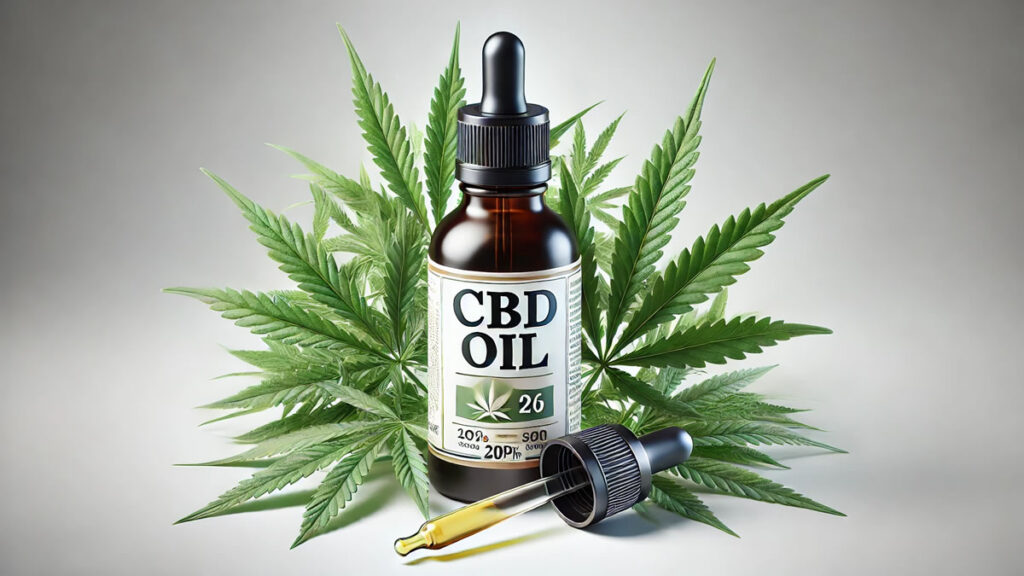In recent years, cannabidiol (CBD) has emerged as a prominent player in the wellness industry. From health food stores to major pharmacy chains, CBD-infused products have become increasingly ubiquitous. However, despite its widespread availability, many consumers still have questions about CBD's nature, effectiveness, and legal status. This article aims to provide a comprehensive overview of CBD, separating fact from fiction and offering evidence-based insights.
What is CBD?
Cannabidiol, commonly known as CBD, is one of over 100 cannabinoids found in the cannabis plant. Unlike its well-known counterpart, tetrahydrocannabinol (THC), CBD does not produce psychoactive effects or the "high" associated with marijuana use. However, it's important to note that CBD can influence mental state, potentially inducing feelings of calmness and reduced anxiety.
CBD can be derived from both marijuana and hemp plants. Hemp, a variety of cannabis containing 0.3% or less THC, is the primary source for most commercially available CBD products.
The Legal Landscape of CBD
The legal status of CBD in the United States is complex and evolving. The 2018 Farm Bill legalized hemp and hemp-derived products at the federal level, effectively legalizing CBD derived from hemp. However, CBD derived from marijuana remains federally illegal, though its legal status varies by state.
The Food and Drug Administration (FDA) is still in the process of developing regulations for CBD products. Currently, the FDA has approved only one CBD-based medication, Epidiolex, used to treat rare forms of epilepsy1. Most other CBD products are marketed as dietary supplements, which are not subject to FDA approval before entering the market.
Does CBD Work? Examining the Evidence
While CBD has been touted for a wide range of health benefits, scientific evidence supporting these claims varies. Here's an overview of some key areas where CBD has shown promise:
- Epilepsy: Strong evidence supports CBD's effectiveness in reducing seizures in certain forms of epilepsy, leading to the FDA approval of Epidiolex2.
- Anxiety: Several studies suggest CBD may help reduce anxiety symptoms. A 2019 study found that CBD improved anxiety scores in 79.2% of patients3.
- Pain and Inflammation: Preclinical studies indicate CBD may have pain-relieving and anti-inflammatory properties, though more human studies are needed4.
- Sleep: Some research suggests CBD may improve sleep quality, particularly in individuals with anxiety or chronic pain5.
- Addiction: Preliminary studies indicate CBD might help reduce cravings and anxiety in individuals with substance use disorders6.
It's important to note that while these findings are promising, many areas require further research to conclusively establish CBD's efficacy.
Navigating the CBD Market: Tips for Consumers
With the rapid growth of the CBD industry, consumers face the challenge of identifying high-quality products. Here are some guidelines to help make informed choices:
- Look for Certificate of Analysis (COA): Reputable companies provide third-party lab testing results, verifying the product's CBD content and absence of contaminants.
- Check the source: Hemp-derived CBD is legal and widely available. Ensure the product specifies its source.
- Consider the extraction method: CO2 extraction is considered the gold standard for producing pure, high-quality CBD oil.
- Read the label carefully: Look for products that clearly state the amount of CBD per serving.
- Start with a low dose: CBD affects individuals differently. Begin with a low dose and gradually increase as needed.
- Consult healthcare professionals: Especially if you're taking other medications, as CBD can interact with certain drugs7.
Safety and Side Effects
While CBD is generally considered safe for adults, it can cause side effects in some individuals. Common side effects include:
- Fatigue
- Changes in appetite
- Diarrhea
- Dry mouth
CBD can also interact with certain medications, particularly those metabolized by the liver. It's crucial to consult with a healthcare provider before starting CBD, especially if you're taking other medications.
The safety of CBD for children and pregnant or breastfeeding women is not yet well-established, and more research is needed in these areas.
The Future of CBD Research
As legal barriers to cannabis research continue to fall, scientists are increasingly able to study CBD's potential benefits and risks. Ongoing research is exploring CBD's effects on a wide range of conditions, from neurodegenerative diseases to mental health disorders.
One area of particular interest is the "entourage effect," which suggests that CBD may be more effective when used in conjunction with other cannabis compounds8. This could lead to the development of more targeted and effective CBD-based therapies in the future.
Conclusion: Making Informed Decisions About CBD
CBD shows promise for certain health conditions, but it's not a panacea. As research progresses, we'll gain a clearer understanding of its benefits, optimal dosing, and potential long-term effects.
For those considering CBD, it's essential to approach it with realistic expectations and a critical mindset. Always purchase from reputable sources, start with low doses, and consult healthcare professionals, especially if you have underlying health conditions or are taking other medications.
As the CBD landscape continues to evolve, staying informed about the latest research and regulations will be key to making safe and effective use of this compound. While CBD may not be the miracle cure some claim it to be, it represents an exciting area of research in the pursuit of natural wellness solutions.
References
- omprised of an Active Ingredient Derived from Marijuana to Treat Rare, Severe Forms of Epilepsy - https://www.fda.gov/news-events/press-announcements/fda-approves-first-drug-comprised-active-ingredient-derived-marijuana-treat-rare-severe-forms ↩︎
- Effect of Cannabidiol on Drop Seizures in the Lennox–Gastaut Syndrome - https://www.nejm.org/doi/full/10.1056/nejmoa1714631 ↩︎
- Cannabidiol in Anxiety and Sleep: A Large Case Series - https://www.ncbi.nlm.nih.gov/pmc/articles/PMC6326553/ ↩︎
- Antioxidative and Anti-Inflammatory Properties of Cannabidiol - https://www.ncbi.nlm.nih.gov/pmc/articles/PMC7023045/ ↩︎
- Cannabidiol in Anxiety and Sleep: A Large Case Series - https://www.ncbi.nlm.nih.gov/pmc/articles/PMC6326553/ ↩︎
- Unique treatment potential of cannabidiol for the prevention of relapse to drug use: preclinical proof of principle - https://www.ncbi.nlm.nih.gov/pmc/articles/PMC6098033/ ↩︎
- CBD and other medications: Proceed with caution - https://www.health.harvard.edu/blog/cbd-and-other-medications-proceed-with-caution-2021011121743 ↩︎
- The Case for the Entourage Effect and Conventional Breeding of Clinical Cannabis: No “Strain,” No Gain - https://www.ncbi.nlm.nih.gov/pmc/articles/PMC6334252/ ↩︎


